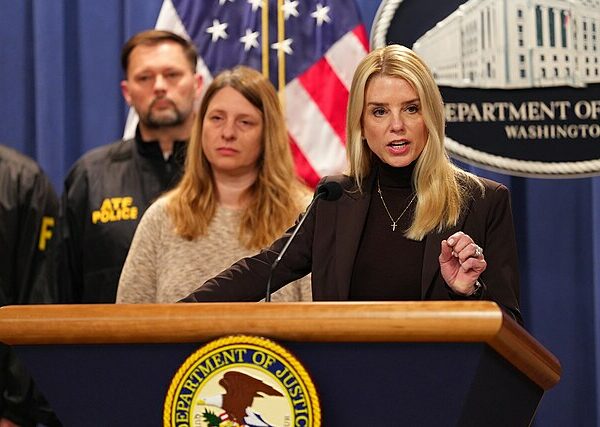
Federal authorities have arrested a Chinese national affiliated with the University of Michigan for allegedly attempting to smuggle a dangerous agricultural pathogen into the United States—a move officials warn could have triggered a nationwide food security crisis. According to prosecutors, the individual, 33-year-old Yunqing Jian, and her boyfriend, 34-year-old Zunyong Liu, attempted to bring Fusarium graminearum—a highly destructive fungal strain—into the country, raising alarms about a potential agroterrorism threat.
The fungus, commonly found in cereal crops, is responsible for Fusarium head blight (FHB), a devastating plant disease that affects wheat, rice, oats, and barley, according to reports. While it occurs naturally under certain conditions, Fusarium graminearum is considered one of the most economically damaging crop pathogens in North America. The Crop Protection Network, a coalition of agricultural experts from major universities, identifies it as “the most economically important wheat disease” in both the United States and Canada. Once established, the disease can wipe out entire harvests and render grain unsafe for consumption.
What makes this fungus particularly threatening is its production of mycotoxins, including deoxynivalenol (DON), also known as vomitoxin, which can cause severe gastrointestinal distress, liver damage, and reproductive problems in both humans and animals. Livestock, especially pigs, are acutely vulnerable to the toxin, making the pathogen not only an economic risk but a food safety hazard with cascading effects across the agricultural supply chain.
Federal investigators cite a 2004 paper published in Molecular Plant Pathology in the criminal complaint against Jian and Liu. The study chronicles how Fusarium head blight reached epidemic proportions across the Northern Great Plains and Central U.S. in the late 1990s, leading to estimated losses of $2.7 billion between 1998 and 2000 alone. The disease is notoriously difficult to combat, with fungicides and resistant crop varieties offering limited success—making prevention and containment absolutely vital.
The New York Times writes that Ms. Jian was arrested and booked in the federal courthouse in Detroit; Mr. Liu is believed to be in China. The criminal charges come as tensions mount between the United States and China over the Trump administration’s vow to “aggressively” revoke student visas for Chinese nationals. Such students, the administration says, risk siphoning off sensitive technology or trade secrets from American labs for the benefit of their home country.
Jerome F. Gorgon Jr., the interim U.S. attorney in Detroit, said the researchers’ actions amounted to “the gravest national security concerns,” saying they had tried to bring “a potential agroterrorism weapon” into “the heartland of America.”
The new case is distinct from most past national security cases related to Chinese students. Ms. Jian and Mr. Liu are accused not of taking material out of the United States, but of bringing it in. And charging papers specifically cite Ms. Jian’s written pledge of loyalty to the Communist Chinese Party.
When a customs agent at Detroit Metropolitan Airport found the baggies last summer, Mr. Liu at first denied they were his but eventually admitted to smuggling them so that he could conduct research on it at the University of Michigan laboratory where Ms. Jian worked, according to a criminal complaint filed against the pair.
The couple’s arrest, first reported by The Detroit News, comes amid renewed scrutiny of foreign nationals operating within U.S. academic institutions. The parallels to previous cases, including the 2019 arrest of Zaosong Zheng—who was caught smuggling 21 vials of biological research material out of a Harvard-affiliated lab—have only intensified calls for stricter vetting of international researchers. “Our universities are full of terrorists,” posted one user on X. Another wrote, “This isn’t just espionage—it’s economic warfare.”
The Biden administration has remained largely silent on the matter, but it comes on the heels of a policy shift under former President Trump. As Forbes reported last week, the administration had begun pausing student visa interviews pending deeper social media and background checks—especially for Chinese nationals.
The University of Michigan has yet to release a public statement. This isn’t the first time a Chinese student at the university has broken federal law. During the 2024 election, a Chinese national fled the United States after illegally voting in the election.
[Read More: Biden Daughter Has Online Meltdown]











